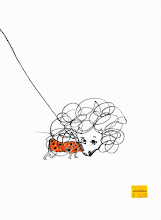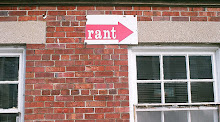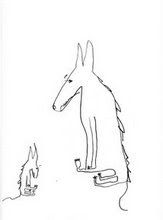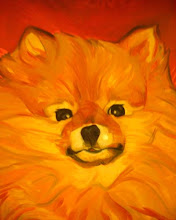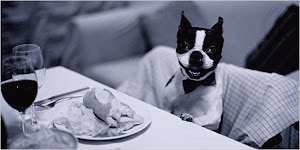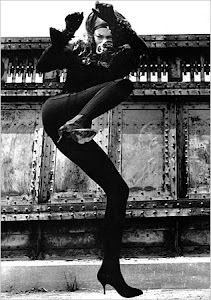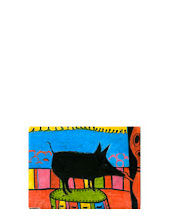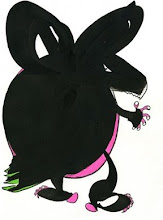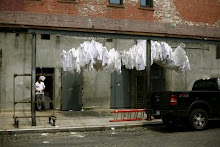When you are in your bed by 7:30pm and willing the sun to go down on a dreadful, oh call it a baroquely dreadful day filled with anguish and unusual cruelty, the very last thing you think you need is to read a book about a father who says things to his son such as, on his first day of kindergarten, "You thought it was hard? If kindergarten is busting your ass, I got some bad news for you about the rest of life."
There is a certain ring of familiarity to this sort of parent. One of mine would say to us as we crawled home after a schoolyard brawl, "It's a dog eat dog world, get used to it."
The other parent would look at my tattered brothers and say "Looks like you were talking when you should've been listening."
So, cold is the temperature of the comfort we are accustomed to, sadly. But still. Does a whole book of it sound like the sort of thing you want to read? Especially when you've surely lived with it long enough to satisfy anyone not fully a masochist? More to the point, at this special moment in the history of our life, is this the sort of book that's even healthy?
Turns out Sh*t My Dad Says is astonishingly good company on a bad day, if for no other reason than it does a body good to laugh out loud when you think you might have lost the knack altogether.
The seal of sadness was broken with this gem:
On Spending the Night at a Friend's House for the First Time
"Try not to piss yourself."
Sage advice indeed.
Justin Halpern's dad is full of sparkling gems of advice like this. Halpern Senior has a remarkably foul mouth for someone who is a doctor of nuclear medicine,whatever that is, but maybe we don't know enough about the profession. What comes between your garden variety foul-mouthed mean parent's "I just tell it like it is" and the elder Halpern's is that beneath the crusty crust, he is truly and magnificently decent. He notices that the smelly unreliable pitcher in Little League is the troubled son of an alcoholic and takes him under his wing, in a brusque and crusty sort of way, then tells off the smirking self-satisfied parent who dissed the kid, you know, "trash talking" such that the poor hapless child was utterly thrown off his game. You have the impression that telling off a kid is ok in certain circumstances, dissing a victim is not. No, that's just being a bully. And, for that matter, Little League is about playing a game and therefore everyone gets a turn regardless of whether you're winning or losing. "You pitched a great game, you really did. I'm proud of you. Unfortunately, your team is shitty....No you can't go getting mad at people because they're shitty. Life with get mad at them, don't worry."
You learn a lot of valuable lessons from Mr. Halpern. Liars are number two after Nazis as the worst thing to be. And it's best not to cheat. "Cheating's not easy. You probably think it is, but it ain't. I bet you'd suck more at cheating than whatever it was you were trying to do legitimately." Now, that is worthy of consideration. As one who cannot tell a lie in part because my memory is so bad I immediately get caught, this had a pragmatic ring to it that gets you to the right answer without any fancy high-stepping around thorny ethics issues: Don't cheat, it's harder to do it well than you think it is. Play nice with others. Don't leave your toys where someone else likes to put their ass. And so on.
And, "you always have the right to be an asshole -- you just shouldn't use that right very often."
Can't argue with that.
It would be interesting to know what Mr. Halpern might offer as advice to someone trying to reach a coma state at 7:30pm. Probably something like "Get over yourself. Everyone has the right to be an asshole, but it's not worth feeling this bad about one."
Monday, August 9, 2010
Tuesday, March 23, 2010
The Guernsey Literary and Potato Peel Pie Society + The Other Hand
It is a rare and fine thing to find a book so good you can't wait to get home to it, and lucky me, I've found two in a week.
Both are anchored by the direst of circumstances and times but both have such a life affirming lightness, without being affirmation-oriented in the least, so as to make it true that great art must come of great hardship.
Let us begin with Guernsey, and because this is vaguely British it might well be pronounced "Jersey" and mean that other place in the ocean, off the big island. But no, Guernsey it is, in print anyway, Jersey really is somewhere else. No idea how it's pronounced by natives, but I'm suspicious that it isn't as obvious as it should be.
The mouthful of a title -- The Guernsey Literary and Potato Peel Pie Society - is a bit of a set-back to be honest, promising something along the lines of the Ya Ya Sisterhood or maybe those large lady detectives, both referring of course to a series of books with cutesy titles which run perilously close to cloying cutesiness. But don't let the cuteness put you off. Nor the format -- it is a story told in letters but each is so compelling and funny and alive with character that you more or less forget that this is a literary trick that grows tedious.
Geurnsey is a gorgeous island occupied by Germans during the second world war. The hardship perpetrated on both the soldiers and the civilians was horrible, but maybe less than what was happening on the continent. Evil and cruelty and grief are revealed slowly, as are the character flaws and gold-star good things about each person within the tight circle of the literary group, a kind of book group where each member talks about what they've read or loved. But that's just the back drop of course. The interesting thing is what is endured and how, and what comes of it. Can a book about war be joyous? Ya ya it can.
The Other Hand meanwhile is dark and beautiful in a completely different but somehow related way. It has a slight scent of that other book with a mouthful of a title, Extremely Loud and Incredibly Close in that a great deal of the pain that is felt is articulated through a very small, very clever boy. It is another book about struggle and unfairness, but it also is so anchored in engagement and life that it, too, is somehow rendered a joy to read.
Both are anchored by the direst of circumstances and times but both have such a life affirming lightness, without being affirmation-oriented in the least, so as to make it true that great art must come of great hardship.
Let us begin with Guernsey, and because this is vaguely British it might well be pronounced "Jersey" and mean that other place in the ocean, off the big island. But no, Guernsey it is, in print anyway, Jersey really is somewhere else. No idea how it's pronounced by natives, but I'm suspicious that it isn't as obvious as it should be.
The mouthful of a title -- The Guernsey Literary and Potato Peel Pie Society - is a bit of a set-back to be honest, promising something along the lines of the Ya Ya Sisterhood or maybe those large lady detectives, both referring of course to a series of books with cutesy titles which run perilously close to cloying cutesiness. But don't let the cuteness put you off. Nor the format -- it is a story told in letters but each is so compelling and funny and alive with character that you more or less forget that this is a literary trick that grows tedious.
Geurnsey is a gorgeous island occupied by Germans during the second world war. The hardship perpetrated on both the soldiers and the civilians was horrible, but maybe less than what was happening on the continent. Evil and cruelty and grief are revealed slowly, as are the character flaws and gold-star good things about each person within the tight circle of the literary group, a kind of book group where each member talks about what they've read or loved. But that's just the back drop of course. The interesting thing is what is endured and how, and what comes of it. Can a book about war be joyous? Ya ya it can.
The Other Hand meanwhile is dark and beautiful in a completely different but somehow related way. It has a slight scent of that other book with a mouthful of a title, Extremely Loud and Incredibly Close in that a great deal of the pain that is felt is articulated through a very small, very clever boy. It is another book about struggle and unfairness, but it also is so anchored in engagement and life that it, too, is somehow rendered a joy to read.
Subscribe to:
Posts (Atom)
